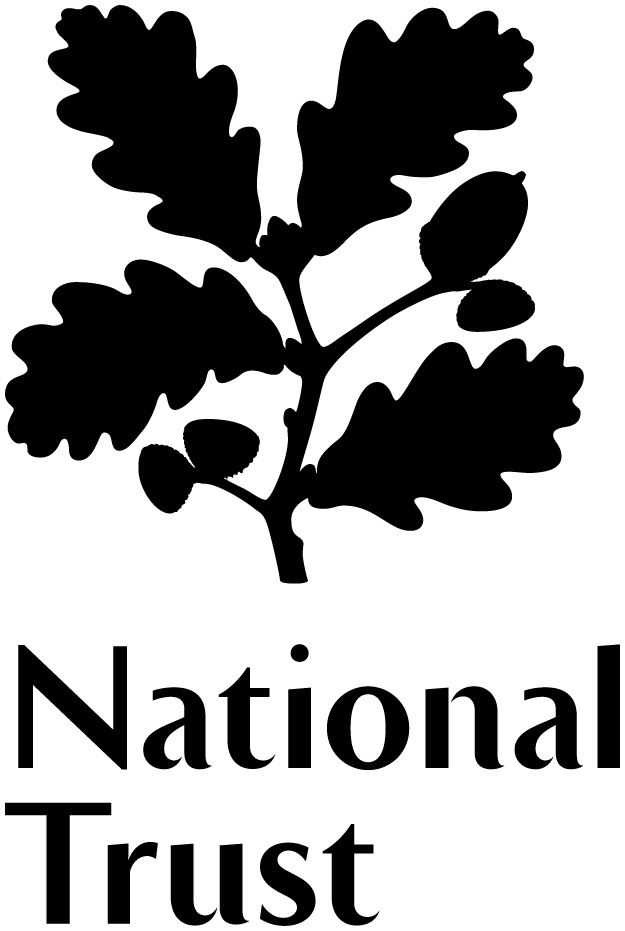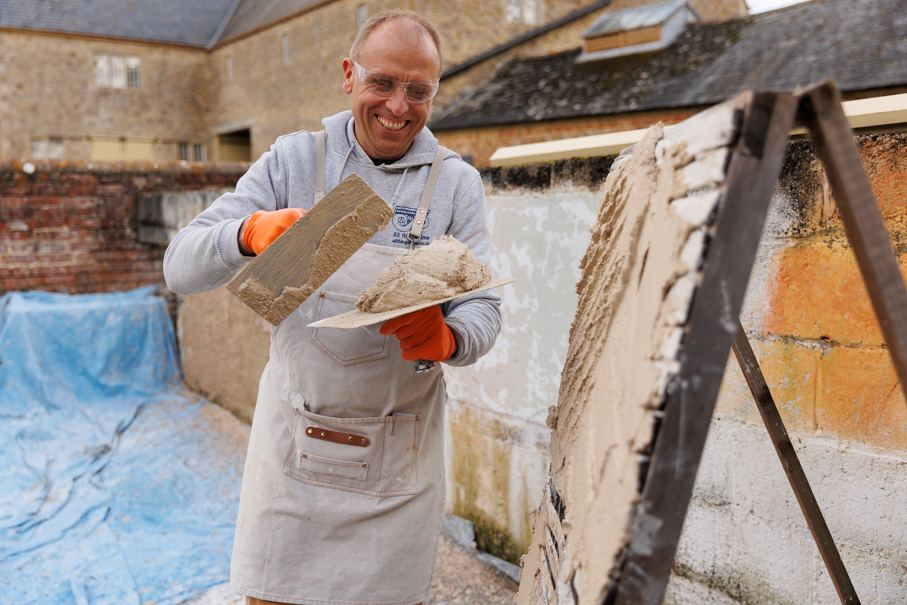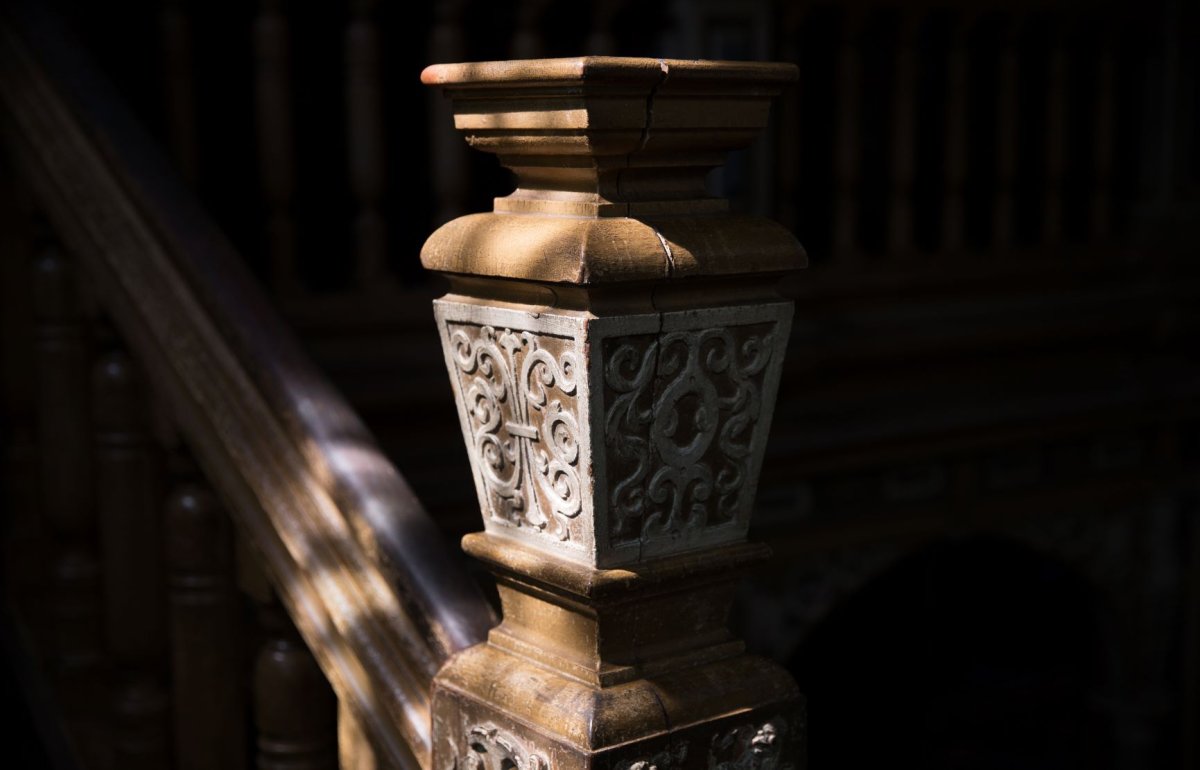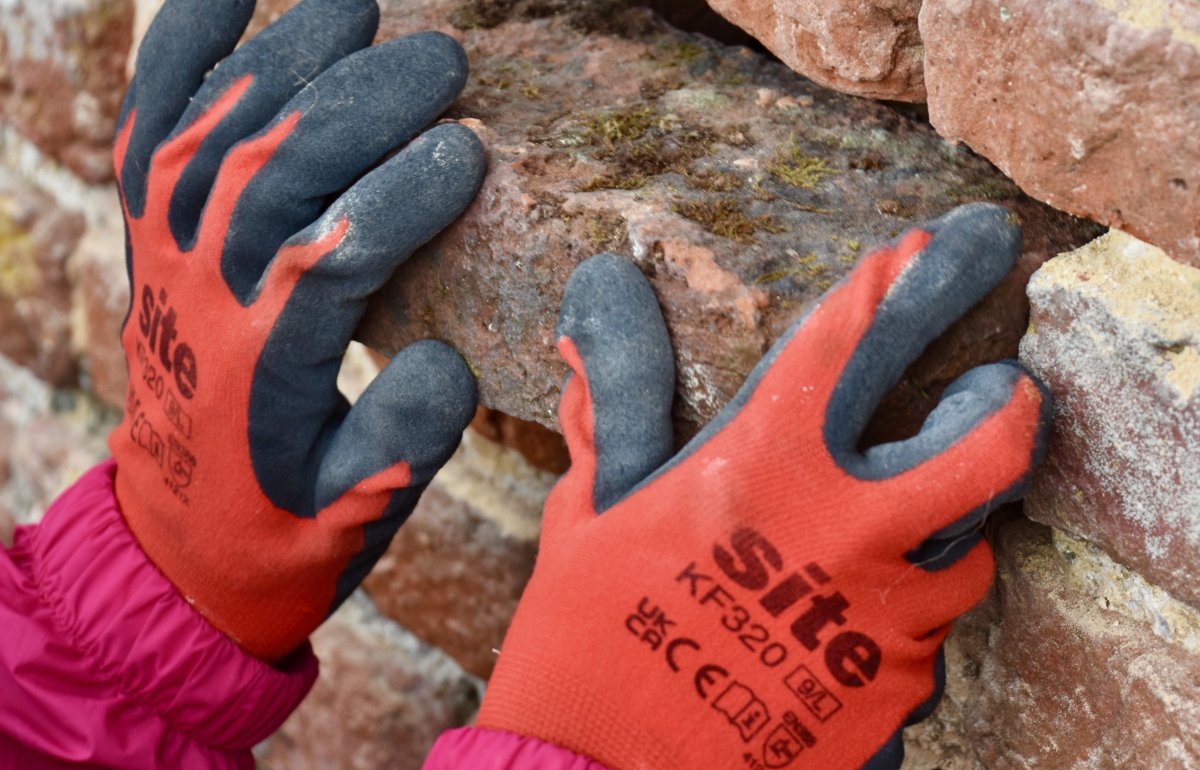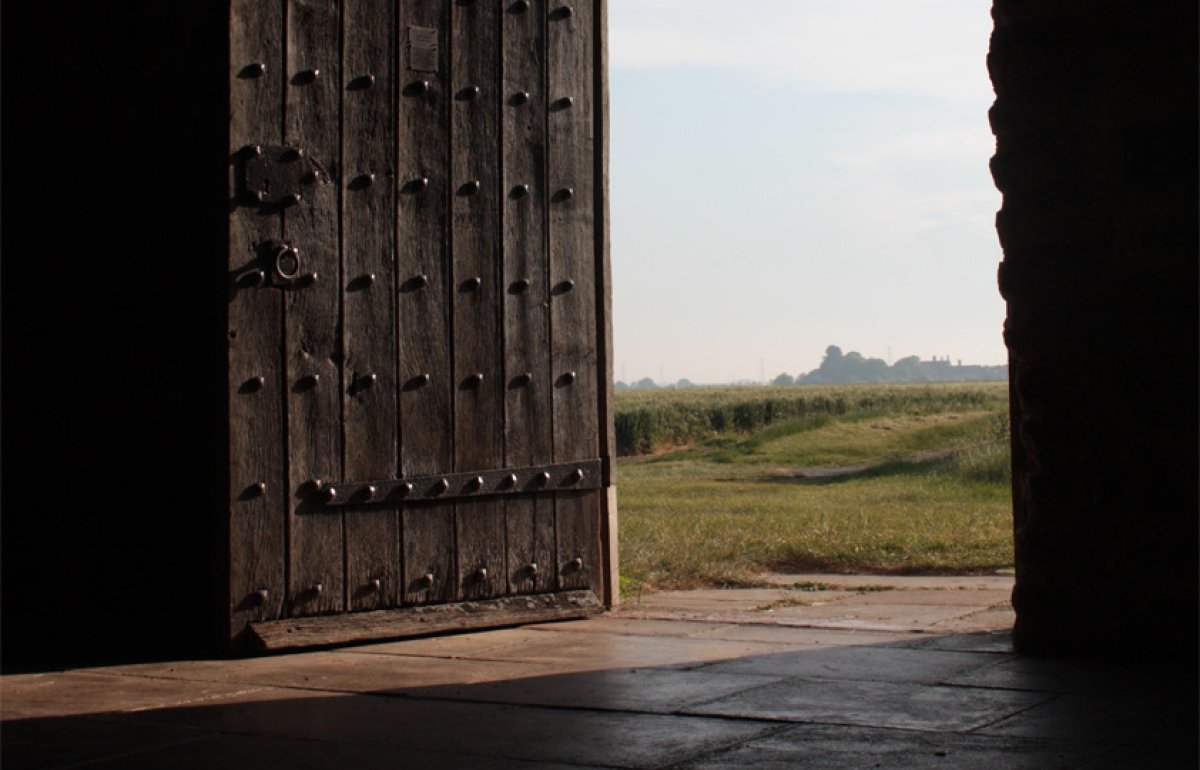An Introduction to Plain Lime Plastering

An Introduction to Plain Lime Plastering
Join us for a hands-on introduction to lime plastering – perfect for homeowners and DIYers, building custodians and specifiers.
I really appreciate the skill and patience of the course tutors. I am very grateful for them wanting to share their knowledge. Their passion for lime plastering and traditional buildings really came through.
CH1/25
£499, including lunch, refreshments and practical lime guide.
Event details
Friday 25 - Saturday 26 April 2025
Join us for a hands-on introduction to lime plastering – perfect for homeowners and DIYers, building custodians and specifiers.
Our course venue is the custom-designed plastering studio at the National Trust’s Heritage and Rural Skills Centre, where you’ll have your very own plastering bay to practice throughout the course. We also keep our classes small and friendly, so you’ll have plenty of attention from our course team. Tutors Sean Wheatley and Michal Wolf are Master Plasterers with decades of experience working with lime. They will be joined by Marianne Suhr, a chartered building surveyor and co-author of the SPAB's Old House Handbook, with assistance from the Durrant & Daughter team.
If you live in or care for an old house, you’ll come away with the practical skills you need to confidently tackle lime plaster repairs in your own home.
Who is this course for?
- This introductory course is for anyone interested in learning about plain lime plastering for their home or old buildings under their care. We also welcome conservation officers, heritage consultants, architects, building surveyors and other specifiers too.
- If you are already have some experience of plastering, and would like to learn about working with traditional lime plaster, we recommend you join our one-day course for contractors, craftspeople and plastering tutors on 10 May 2025.
You will learn
By the end of the course, you will know:
- The basics of working with lime, including slaking, mixing and sand selection.
- How to safely work with lime, including the correct use of tools and PPE.
- How to fix laths and other substrates you might encounter on the job.
- The correct technique for mixing and applying plasters, including the base coat, pricking up coat, float coat and setting coat.
- When and how to use hydraulic lime.
- An introduction to insulating traditional walls.
- How to repair lime plaster cracks.
- How to limewash.
Want to learn more about plastering at the National Trust’s Heritage and Rural Skills Centre? Check out our other courses there:
- Traditional Lime Plastering for Professionals, a fast-paced one-day course for plasterers, plastering tutors, and building contractors and craftspeople with plastering experience, 10 May 2025.
- Pargeting, a one-day workshop for anyone interested in learning pargeting skills for work, general interest or leisure, 7 June 2025.
Programme
This programme is subject to minor changes.
Day One
| 9.30am | Registration |
| 9.45am | Welcome and Introduction to the SPAB |
| Health and Safety Briefing | |
| 10am | Introduction to Lime: |
| - use in traditional buildings | |
| - the Lime Cycle | |
| - types of lime | |
| - slaking, mixing and sand selection | |
| 11am | Refreshments |
| 11.15am | Practical Session, group split into two: |
| - Group A: fixing laths and alternative substrates | |
| - Group B: mixing plasters | |
| 12.15pm | Practical Session, group split into two: |
| - Group A: mixing plasters | |
| - Group B: fixing laths and alternative substrates | |
| 1.15pm | Lunch |
| 1.45pm | Demonstration: |
| - applying base coats | |
| - spatter coats on masonry | |
| - pricking up coat | |
| 2.15pm | Practical Session: applying base coats and pricking up coats |
| 3.30pm | Clear Up and Preparation for Day Two |
| 3.45pm | Refreshments |
| 4pm | Case Studies: |
| - plain internal plasterwork and repair | |
| - reinstating decorative ceilings | |
| 5.30pm | End of Day One |
Day Two
| 9am | Registration |
| 9.10am | Health and Safety Briefing |
| 9.15am | Practical Session: applying float coats |
| 10.45am | Refreshments |
| 11am | Practical Session: applying setting coats |
| 12.30pm | Demonstration: plastering on alternative surfaces, including insulation boards |
| 1pm | Lunch |
| 1.30pm | An Introduction to Hydraulic Limes |
| 2pm | Practical Session: lime plaster crack repair and maintenance |
| 2.45pm | Demonstration: limewashing |
| 3.15pm | Clear Up |
| 3.30pm | Refreshments |
| 3.45pm | Insulating Traditional Walls |
| 4.25pm | Close and Thanks |
| 4.30pm | End of course |
You will need
- Please wear warm, comfortable clothing that you don't mind getting dirty or damaged. We recommend you bring overalls or coveralls to wear if you can.
- You will need to wear sturdy (flat and closed) footwear, ideally steel-toe capped boots.
- We will provide all necessary protective equipment, but if you would prefer to wear your own gloves, goggles and mask please bring them.
- All tools and materials will be provided. If you would prefer to bring your own plastering tools – hawk, trowel and water brush – please ensure they are labelled.
Tutors
Sean Wheatley, traditional plasterer
Sean has four decades' experience as a plasterer specialising in traditional methods, materials and decorative plasterwork. He is a SPAB Guardian on our Education and Training Committee and is a Master Plasterer of the Worshipful Company of Plaisterers.
Michal Wolf, plasterer and conservator in lime
Michal is a Master Plasterer of the Worshipful Company of Plaisterers and a founder of All Things Lime. He is passionate about traditional methods of working and keeping the craft of lime plastering alive.
Marianne Suhr
Marianne is a chartered building surveyor, writer and broadcaster specialising in the repair of historic buildings. Marianne is co-author of the SPAB's Old House Handbook and Old House Eco Handbook.
With thanks to Jon and Lottie Durrant for their assistance on this course.
Assessment / Accreditation
The SPAB is an IHBC- recognised CPD provider and attendance certificates for CPD are available on request.
Accessibility
This is a practical course held in a workshop environment, which can be dusty, cold and noisy. There are some uneven surfaces, such as cobbles, due to the historic nature of the building.
The practical elements of the course involve a lot of physical activity. You will also need to stand for much of the day.
Accessible parking spaces are marked in the car park. Accessible toilets are available.
Anything we can do to make this event more accessible for you? Please email education@spab.org.uk.
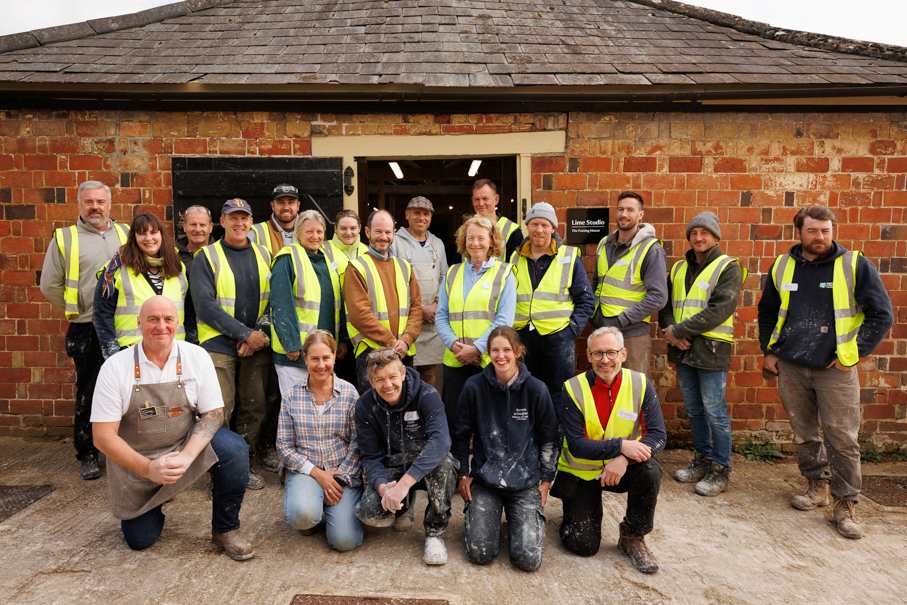
All bookings are subject to our Terms and Conditions.
We may take photos or videos at this event to be used in future promotion, including in print and online.
Photo credit © Ralph Hodgson.
This event is in association with the National Trust.
